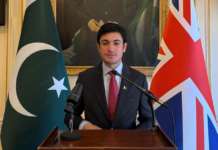The withdrawal of NATO soldiers from Afghanistan heralded the start of a new era for Afghanistan, which had been ripped apart for decades by foreign invasion and civil strife. The government transition was not orderly, as predicted, and the Taliban’s swift takeover of Kabul was unexpected. In comparison to the past, the Taliban this time was considerably more moderate, promising the world an inclusive and representative government in Afghanistan, as well as equal opportunity for women and girls to engage in all sectors of Afghan society. Following the Taliban’s takeover, the international community began to restrict aid and support. The lack of international backing for the newly constituted administration has triggered a fresh economic and humanitarian crisis in a country already beset by insecurity, dwindling revenues, COVID, and drought. The international community does not recognize the Taliban’s provisional administration. None of the cabinet members in the Taliban government are women, and some of the cabinet members are on the UN terror list, making it difficult for the international community to recognize the government. Other ethnic groups, like as the Hazara and Uzbeks, have also been denied representation in the administration.
The country is experiencing acute issues as a war-torn and impoverished country for decades. The government’s lack of skilled and experienced personnel is one of the most significant difficulties. More than 123,000 Afghan citizens have been evacuated from Kabul since the Taliban took control in August, according to a report from the US State Department. The afghan economy is on the verge of collapse as a result of the sanctions on international aid and assistance, and it is struggling to cover basic expenses such as government employee salaries. Foreign investment has been substantially curtailed as a result of the Taliban’s fear, which was already exceedingly low prior to the Taliban regime. Due to the Taliban regime’s ambiguous Islamic banking policy, Afghanistan’s banking sector is likewise in limbo. Similarly, the unexpected collapse of the Afghan military and police, which were sponsored and financially supported by the US and its allies, has resulted in a loss of income, which has impacted their families.
In order to prevent the Taliban regime from misusing the cash, the US Federal Reserve has frozen all of Afghanistan’s foreign exchange holdings, totaling almost $7 billion. This is undermining the ability of the Afghan central bank to maintain the exchange rate by exchanging its dollar and another foreign reserve for the local currency, perhaps leading to hyperinflation. Other lending organizations, including the International Monetary Fund, the World Bank, and the Asian Development Bank have also halted
disbursements, including assistance for high-priority development programs such as essential public health and rural development.
The biggest threat to Afghan stability and its pledge to stop using Afghan soil against foreign countries is the revival of the Islamic State of Khurasan. As a state actor, the ISK looks to be preparing for a largescale violent campaign against the Afghan Taliban, casting doubt on the Taliban’s ability to govern and provide security to its citizens. The Taliban government suffered a huge blow with the attack on Kabul International Airport during the evacuation of Afghan and foreign nationals. The Taliban and the ISK are
ideological foes. The Taliban aspires to create an emirate based on national borders, which is in opposition to the Islamic state’s global caliphate concept.
Afghanistan’s current difficulties can be solved over time if the Taliban administration keeps its promises to the international world. To garner international support and avoid a humanitarian and economic crisis, their leaders must keep their promises, exhibit moderation, combat terrorism, unify all ethnic groups, and protect human rights. Similarly, IS-increased K’s strikes in Afghanistan are triggering alarm bells in the west and neighboring countries, weakening public trust in the Taliban, who had
promised to bring peace to Afghanistan once they won power.




